Introduction
"Roping" comes from a literal rope that would appear in Hearthstone games when you or your opponent would use, purposefully, all the time available in their turn, every turn. In Hearthstone, the rope would appear around the board when the turn is about to end, and start to burn, to make it easier for players to tell how much time they had left to make their plays. That's where "Roping" comes from.
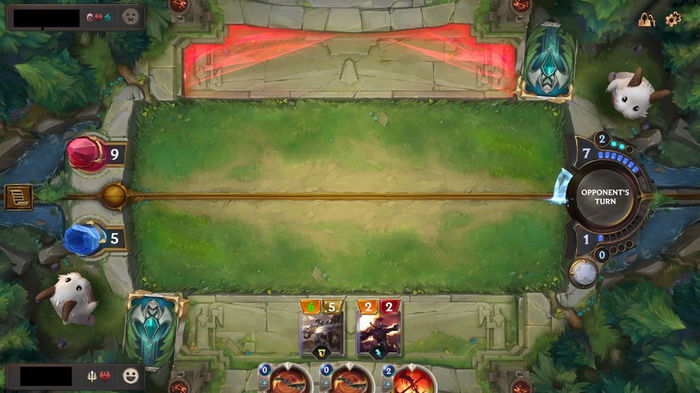
Roping is a practice in digital card games used to frustrate opponents and make them run out of patience. In the ranked queue, not everyone has the patience to play 30 to 40 minute matches, and, as a result, many people end up surrendering their matches, because they are being held hostage by their opponent.
With the June Runeterra Opens coming soon, I realize Roping as a practice has increased exponentially among players in the Eternal format. For that reason, I prepared a tutorial on how to defend yourself against those types of players.
In grassroot tournaments and official tournaments, the Roping strategy, as much as it may be allowed, can still be considered unsportsmanlike. I'll prove why Roping shouldn't be done, and why it is extremely toxic in a competitive environment.
Roping Puts You in a Disadvantage
The main goal with Roping is to make your opponent lose their patience, and that can be compared to dancing as a taunting strategy in martial arts sports, and even taunting talk in soccer and other sports.
But, those who Rope always have less time on their clock, which means, they are always at a disadvantage. So, we can consider this strategy is high risk, once you're putting yourself in a vulnerable situation in exchange for possibly getting into your opponent's head.
To better understand the reason why having less time on the clock is prejudicial for the competitive player, I propose we understand how the game's clock works.
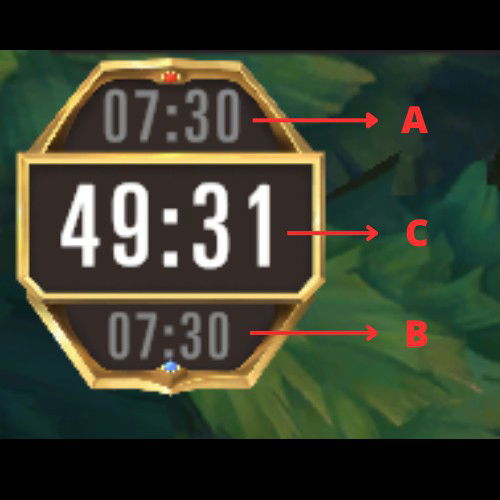
A — The time your opponent has in the match.
B — The time you have in the match.
C — The total time for the duration of the Best of Three.
The time of each player represented by A and B is just a visual indicative of the ideal time each player must have in a Best of Three match. As soon as that time ends, the match still goes on, but, the time for the actions of the player who has their personal clock in the red is smaller.
When the total time in the match, represented by C, ends, the clock blinks red, signalizing an extra 5 minutes to be added to the series. And, when the extra 5 minutes are over, the player who has less time in their individual timer, represented by A and B, automatically loses.
Each series begins with 55 minutes, if you count the extra time, and each player has 7 minutes and 30 seconds recommended per match.
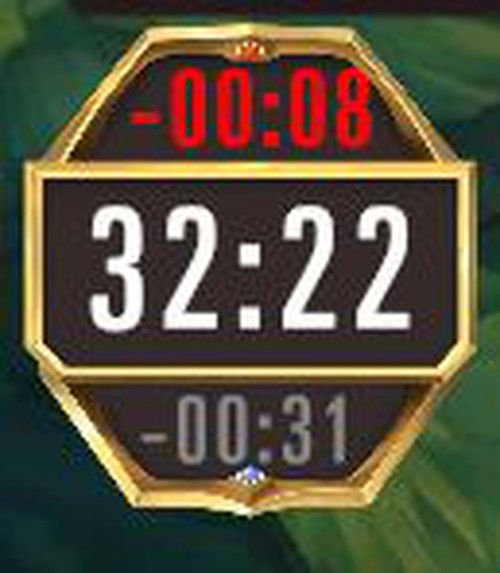
The rope from the term Roping is represented here by the red signal. And "Roping" in Runeterra is when the player, purposefully, takes longer to play each round until the red signal shows up in the screen or their priority passes automatically, due to the excess time spent.
Competitively, it is very advantageous to be on the side of the player who is being Roped on, but it is extremely tiring. Let's see some tips, so you can always come out on top in case you're being held hostage.
Important Tips against Roping in Tournaments
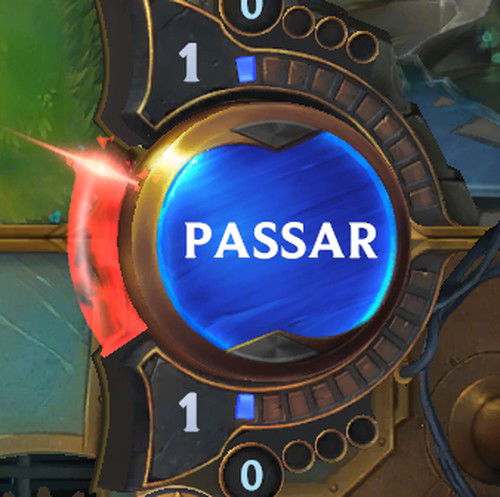
Attention. Roping is technically allowed in tournaments, but it might still be classified as unsportsmanlike. If your opponent is Roping excessively, they can be notified by the tournament organizers, and, depending on who is organizing it, a punishment can be applied.
The player who does the Roping is doomed to play in the following way:
They must play the first and second game as slow as possible, but, they are forced to win the second game, always; otherwise, they'll have to go into a third game in which the one who wins is the one who plays faster. And, in these situations, considering a third game that begins when there are only a few minutes left on the clock, it is very common for the series to be decided on skill alone.
Tips:
1 - Before everything, if you're a constant victim of Roping, always start your series, from the first turn onward, playing fast. Playing fast is a healthy habit that can be a differential in critical moments at the end of a series when the clock time is important.
2 - If you lost the first match, and you're against a "Roper", the situation becomes a bit critical, because your opponent has complete control over the time of the game. The second game, in those situations, is the most important, because in case the series is tied, the third game usually starts with just a few minutes left on the clock.
In case the time on the clock is less than 7 minutes, counting with the 5 extra minutes, you can be sure that the match will probably be decided on the clock rules.
As a result, always play as slow as possible game 2 as well, because in case the series ties, the third game is defined by those who play fastest.
3 - Control decks have advantage in a third game with just a few minutes left on the clock, as it is common for those lists to pass without doing anything in the first few rounds, or interacting with the pile.
The interaction with the pile passes priority to your opponent. Try, as much as it is possible, to always pass priority.
4 - This tip is valid for mobile or computer players: use the dragging interaction to attack with your units. On your phone, it is easier to do so with your index finger, and on the computer it is even easier, with a quick drag of the mouse.

No playing cards on board one at a time, as that takes too long.
5 - When you're going into the third game, change your LoR's graphic settings to the lowest possible, this way enhancing how the game runs on your computer. That makes it easier for your computer or mobile phone to run the game, and it lowers the chance of a possible lagging issue.
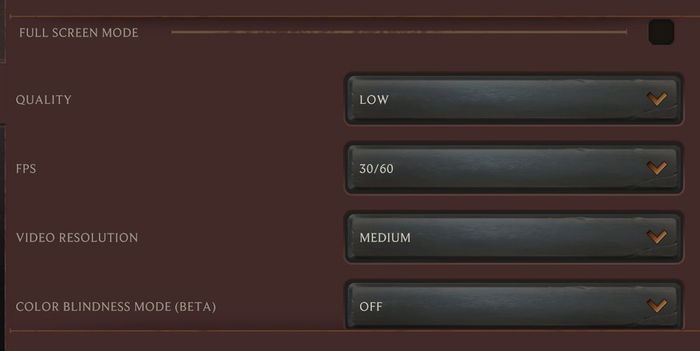
6 - Play dirty too. When you're going into game 3, send your Roping opponent a message, and ask something like; "Which board skin is that?" or "Do you think you banned right?" - the important thing is that the question is something they want to answer, so be creative. Right after asking, click to start the game as soon as possible, because, when the match starts, they'll have a friend tab notification.
LoR's client is famous for bugging when you open your friends' messages, and, in case your opponent falls for it, they'll lose a good 15 seconds as a result.
Never, under any circumstances, open up your own friend tab during game 3 in that situation.
7 - If you can guarantee your performance in the fast game, and you want to go into game 3 because you feel like you play faster, the common strategy is to always take a long time in your turn as well, but always keep a distance of at least 30 seconds away from your opponent's own clock.
8 - Mute your opponent, or answer their emotes; choose the way you think is best to go into their mind and prevent them from going into yours. From the moment your opponent went all-in in a Roping strategy, the psychological warfare began, and you can't fall for any of their tricks.
9 - Samira is the worst champion to play in those situations, because her animations are the longest in the entire game, and her support spells are, the majority of them, burst speed, which means, you don't pass priority in an agile way.
If you're playing Samira, try to play her in the first match.
10 - Avoid thinking in your turn. A very healthy strategy in card games, in general, is to think about your plays in your opponent's turn, and execute what you've already thought about, in yours. In case your opponent does something different, you'll probably be best prepared if you practice your game style this way.
11 - And, lastly, don't Rope. This is toxic for the game's competitive ecosystem, and for a good experience in every game. Roping makes the game stressful and frustrating, and Runeterra is supposed to be competitive and fun. If your Best of Three series always took 55 minutes, the game would be awful to play.
Final Words

If you've read so far, now you have the power to stop all those who practice the evil arts of Roping. Don't forget to share and comment on this article on social media. See you next time!

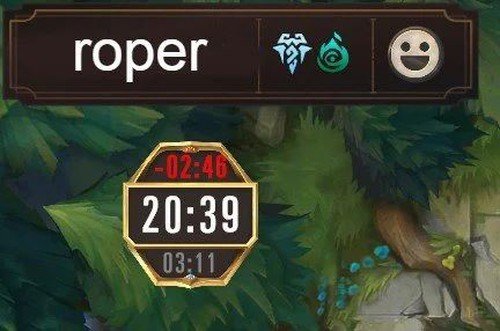







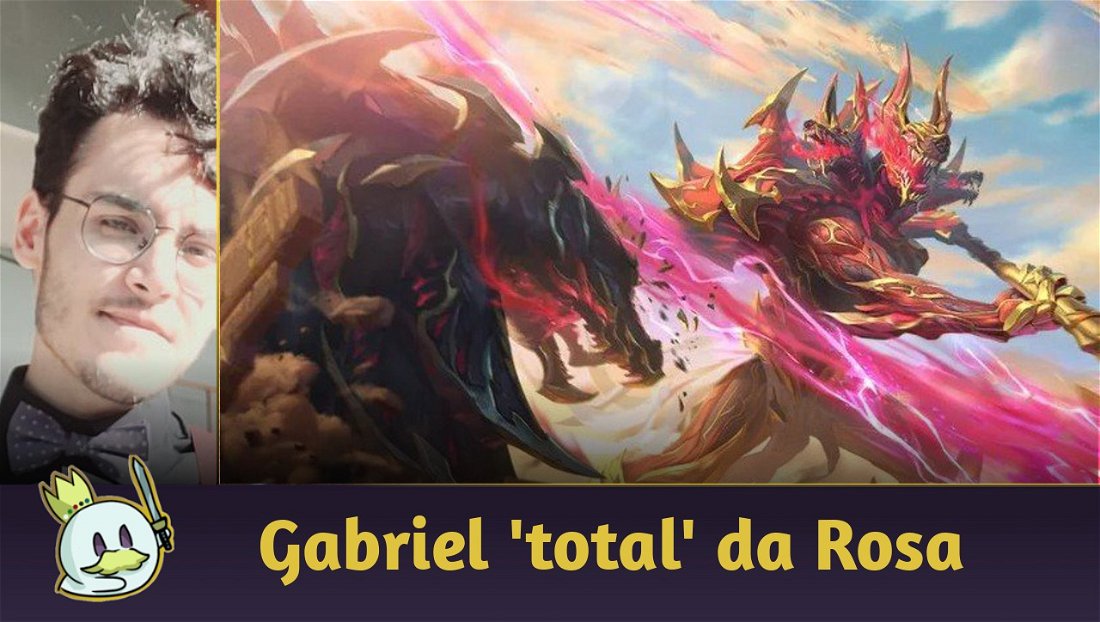




— Комментарии 0
, Реакции 1
Прокомментируйте первым